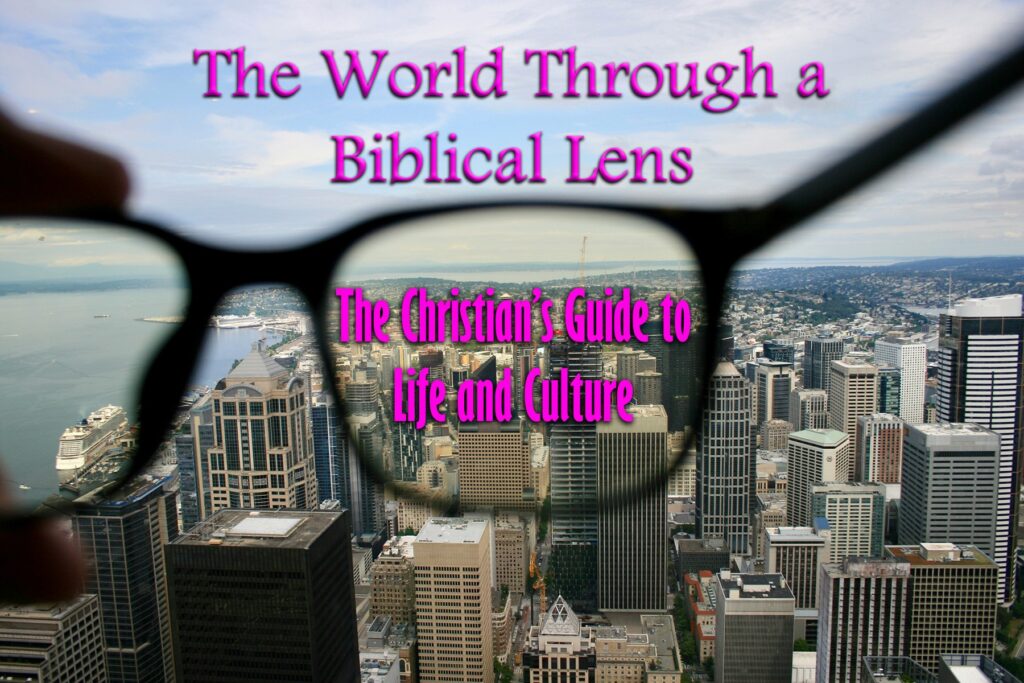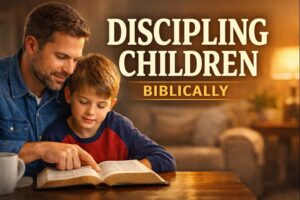⏱️ Estimated Reading Time: 5 min read
One of the best ways to understand eschatology—the study of the end times—is to grasp the “already/not yet” tension woven throughout the Bible. In one sense, the end has already begun in the life, death, resurrection, and ascension of Jesus. In Him, we have forgiveness of sins, adoption into God’s family, and the indwelling of the Holy Spirit. These are present, powerful realities.
And yet, the full completion—the consummation—is still to come.
For instance, a Christian is saved by grace alone, through faith alone, in Christ alone—but that faith is never alone. We are new creations (2 Corinthians 5:17) yet still battling sin as we await final glorification. We have eternal life (John 5:24), but not in its fullest expression.
Even so, we can be tempted to focus too much on what’s “not yet.” Given our world’s growing instability and moral confusion, pessimism can feel like the only logical response. But Scripture calls us to something higher: confidence rooted in Christ’s victory. Satan was decisively defeated at the Cross, and his ultimate end is certain (Revelation 20:10). Evil will be fully eradicated—just not yet (Revelation 20:14).
The “already/not yet” lens not only shapes how we view salvation but also how we understand life, ministry, and our ultimate hope. Here are six ways eschatology strengthens and shapes the Christian life:
Eschatology Equips the Church to Teach Truth
Eschatology is not optional. It is the crown of theology—the final chapter that brings every doctrine to its fulfillment. When churches shy away from teaching about the end times, they leave believers with a theological vacuum.
As theologian Louis Berkhof wrote:
“Eschatology connects to everything else: God’s glory fulfilled, sin’s disruption overcome, Christ’s victory completed, the Spirit’s work brought to final fruition, and the church revealed in her glorified beauty.”
In other words: Eschatology brings the whole story together.
Eschatology Deepens Our Worship
All theology should lead to doxology. This is especially true with eschatology. It reveals the final defeat of evil, the perfect justice of Christ, the New Heavens and New Earth, and our eternal fellowship with Him. These aren’t just doctrines to study, they are promises to savor.
If our view of the end times leads to fear instead of worship, it may be time to examine our hearts—or our theology.
Eschatology Inspires Zealous Service
The return of Christ is not an excuse to disengage; it’s a call to action. Knowing that time is short should fuel our zeal. But wrongly applied, end-times teaching can also lead to apathy—an attitude of “why bother” that weakens the church.
A robust, biblical eschatology reminds us to live with urgency and hope, passionately reaching the lost and glorifying God in all we do.
Eschatology Sustains Us in Suffering
Trials come in many forms—pain, injustice, sickness, or loss. But Christians endure because we know the end of the story. Resurrection is coming. Glory is coming. And so, we press on, with hope in Christ as our anchor.
Eschatology Motivates Evangelism
Satan wants the lost to believe there’s no urgency. But the truth is sobering apart from Christ, people are dead in their sins (Ephesians 2:1–7) and heading for judgment. Eschatology reminds us that eternity is real—and that today is the day of salvation.
This truth should break our hearts and move our feet. We are ambassadors of the only message that saves: salvation by grace alone, through faith alone, in Christ alone.
Eschatology Turns Our Eyes to Heaven
It’s easy to get bogged down in today’s worries. I confess I often do. But Scripture reminds us that this world is not our home. Eschatology lifts our eyes and hearts toward the hope that lies ahead—life with Christ, free from sin, sorrow, and death.
The Lord’s Supper: A Foretaste of Glory
Every time we partake in the Lord’s Supper, we remember the past, experience Christ’s presence in the now, and anticipate the future.
Jesus said in Luke 22:18 that He would not drink of the fruit of the vine again “until the kingdom of God comes.” That moment is coming—when the King returns, when we’ll sit at His table, and when all things are made new.
The Marriage Supper of the Lamb (Revelation 19:6–9) will be the ultimate fulfillment of this promise. Every communion meal whispers, “He is coming.” It confirms that the kingdom is present now—but its full glory is just ahead.
Living Between the Times
We live in the “in-between”—between Christ’s first coming and His return. This tension shapes how we walk through trials. Without a solid grasp of the “already/not yet,” we risk growing discouraged or spiritually stagnant. But when we see the big picture, everything changes.
Suffering is temporary. Sin will be defeated. The victory is already won—and the best is still to come.
On the Last Day, our ongoing battle with sin will end in glorification. Tears will be wiped away. Worship will be unhindered. Work will be glorified. And we will see our Savior face to face.
Grasping the full counsel of God—from creation to consummation—gives us wisdom, courage, and unshakable hope.
Until then, we live and labor in light of the Day to come.

The World Through a Biblical Lens: The Christian’s Guide to Life and Culture
Dave Jenkins is happily married to his wife, Sarah. He is a writer, editor, and speaker living in beautiful Southern Oregon. Dave is a lover of Christ, His people, the Church, and sound theology. He serves as the Executive Director of Servants of Grace Ministries, the Executive Editor of Theology for Life Magazine, the Host and Producer of Equipping You in Grace Podcast, and is a contributor to and producer of Contending for the Word. He is the author of The Word Explored: The Problem of Biblical Illiteracy and What To Do About It (House to House, 2021), The Word Matters: Defending Biblical Authority Against the Spirit of the Age (G3 Press, 2022), and Contentment: The Journey of a Lifetime (Theology for Life, 2024). You can find him on Facebook, Twitter, Instagram, Youtube, or read his newsletter. Dave loves to spend time with his wife, going to movies, eating at a nice restaurant, or going out for a round of golf with a good friend. He is also a voracious reader, in particular of Reformed theology, and the Puritans. You will often find him when he’s not busy with ministry reading a pile of the latest books from a wide variety of Christian publishers. Dave received his M.A.R. and M.Div through Liberty Baptist Theological Seminary.




